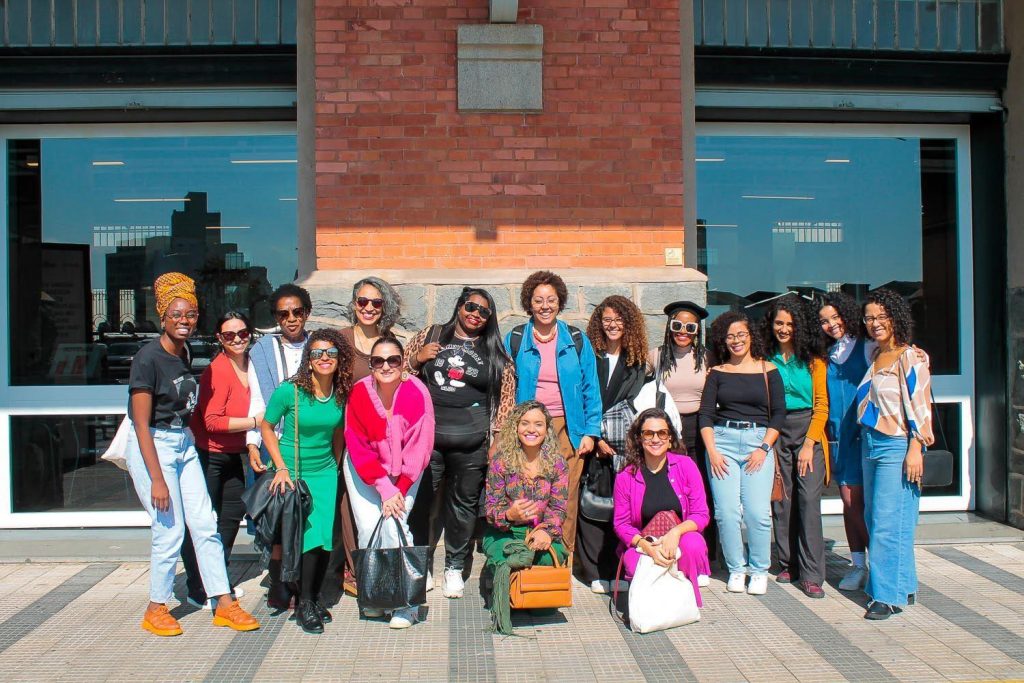This website uses cookies so that we can provide you with the best user experience possible. Cookie information is stored in your browser and performs functions such as recognising you when you return to our website and helping our team to understand which sections of the website you find most interesting and useful.

Psychological care for vulnerable women
Period: August 2021 – January 2022
Partner: Casa de Marias

 voltar
voltar
Women are among the primary target audiences of the Cactus Institute. That’s why we’ve crafted a dedicated project aimed at nurturing the mental well-being of women. We’ve chosen Casa de Marias as our partner in this initiative because of their expertise in providing shelter for women in vulnerable circumstances. In addition to offering strategic intelligence support, the project to deliver emergency psychological care for Black, Indigenous, and marginalized women in vulnerable situations has also received financial backing from the Cactus Institute.
In addition to advancing the goal of democratizing access to mental health care for women through emergency care, this project is designed to identify and educate concerning potential approaches to psychological care for more effective and efficient interventions, whether in the public or private sector.
This initiative was led by a group of Black women who focus on care issues related to class, gender, race, and geography. Over a span of six months, the project provided 288 spots for participants, free of charge, in two formats: emergency reception groups and emergency shifts. Monitoring was conducted virtually, for the purpose of facilitating access and reducing resistance among these women toward the psychotherapeutic process.
It’s noteworthy that, under the guidance of the Cactus Institute team, Casa de Marias adopted specific perspectives and approaches to support this group, considering not only individual concerns but also the structural aspects. To this end, the project adopted two modes:
Psychology On-call: Designed to welcome the women receiving assistance and address their specific and urgent needs, this mode acted as a gateway to other forms of support, with referrals for individual or group therapeutic sessions when necessary.
Open Emergency Care Groups: Conducted on a weekly basis, these rotating care groups were supported by a team consisting of two psychotherapists and a supervisor, enabling a larger number of women to receive assistance. This mode proved significant as it reinforced the efficacy of such care in mental health services, enabling women both to relate to and empathize with others while recognizing the structural dimensions of their psychological distress.

Results
- The project has been permanently incorporated by Casa de Marias.
- 288 places made available between August 2021 and January 2022 for women in vulnerable situations, with 194 women seeking assistance;
- 55.3% Black women
- 43.8% living in rented accommodation
- 42.2% completed high school as their highest level of education
- 40.6% single, no children
- 65.6% with total family income of 1.5 minimum wages (about USD 400 at 9/23)
- Bridging the gap in quick, emergency assistance for crisis situations, especially during a pandemic.
- Demonstration of the importance and viability of individual and collective psychological care in virtual format as a way to include participants from remote areas of the country.
- Production of a video about the project, as a way of systematizing and disseminating lessons learned.
- Construction and consolidation of the types of reception offered, with an in-depth understanding of individual on-call and group reception for emergency situations.
- Contribution to the destigmatization of mental health conditions.
Lessons
- Remote care helps democratize access and extends the reach of mental health services and care.
- It is essential to promote the articulation and integration of network services (social assistance and legal services, among others) in mental health care.
- Group sessions have great potential, especially due to the processes of identification and support-network building among the participants.
- Black and marginalized women encounter difficulties in accessing services with which they identify and where they feel welcomed with their specific needs.
- Protocols for emergency care need to be made more flexible, to be able to take into account the specific needs and context of each case.
Video
Want to know more about the project and its results? Watch the video.



